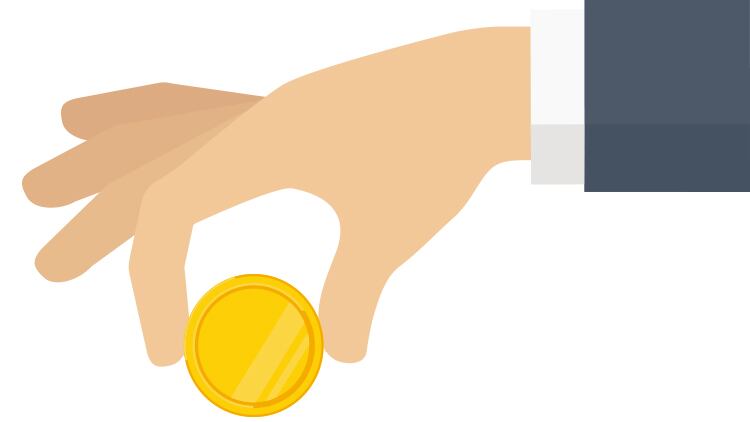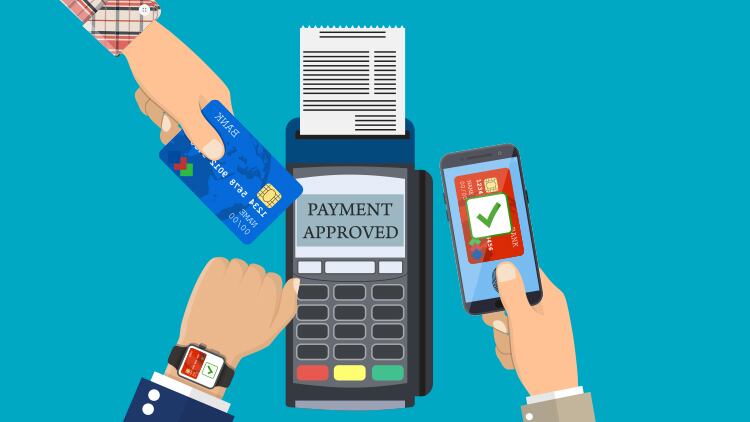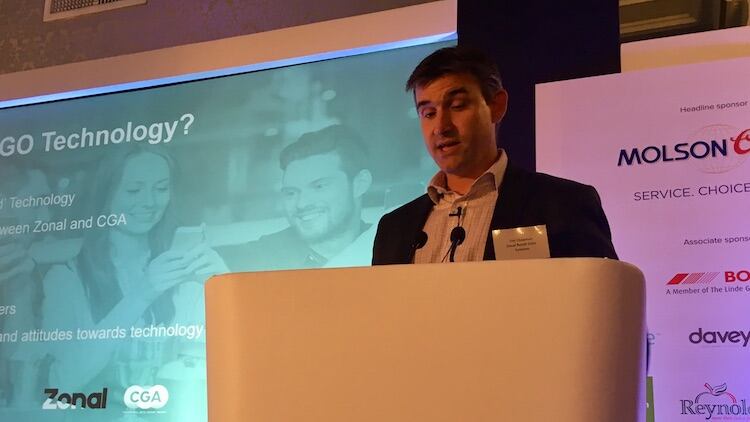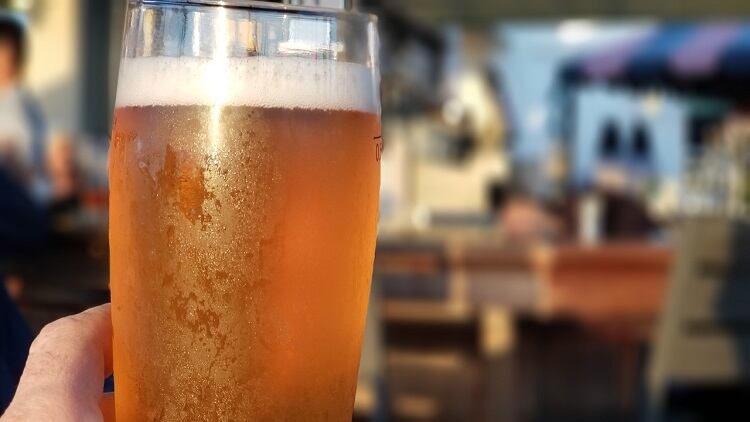If ageing ‘King Cash’ is still clinging to power, he should probably consider What’s App-ing peace terms to the smartphone-wielding, challenger bank card-carrying hoards crossing its borders.
According to UK Finance, 2017 was a landmark year in payment methodology as the value of card transactions overtook cash for the first time in history – £13.2bn to £13.1bn.
A UK Finance spokesperson explained: “We expect this trend to continue, as customers and businesses increasingly opt for the convenience of paying in a way that suits them.
“This is being driven by the increasing popularity of contactless payments, with many of us now reaching for our cards or mobile devices rather than cash to make low-value purchases.”
Matt Lane, managing director of smart machines at data solutions firm Vianet, explains that consumers are increasingly seeking speed and convenience in their payments. “If it’s a low transaction value, why would I want to use cash?” he says. “If it’s a higher transaction value they still have the option of chip and pin.
“If you look at it as a series of phases of the consumer payment mechanic, the drift has gone from coins, to credit card with chip and pin, to contactless, and the next iteration of payment system will be mobile app payment.”
And this ‘drift’ is increasingly evident in pubs.
In addition to big pub groups led by JD Wetherspoon launching apps, findings from CGA Insight and Zonal’s 2018 GO Technology survey revealed that 30% of customers have already used a mobile phone to pay in a pub.
Pubs going cashless
In September 2018, the Boot in Freston, near Ipswich in Suffolk, made head-lines as its operator claimed that it was the first pub in the UK to go cashless. It was mistaken.
Dom Nisbet of the Koelschip Yard in Glasgow, for example, has been operating cashless since the venue opened in September 2017.
“Folk got the gist of what we are doing pretty quickly and it’s not been an issue at all really,” he says. “It makes life so much easier on all fronts – no cash up at the end of the night, no money kept on site, no bank runs, no running out of change over bank holiday weekends, no fake notes, no wrong change.
“We do, however, accept cash tips – obviously.”
Ash Wright of Sandbar in Manchester stated the pub had been looking at going cashless since the start of 2016 before considering it more seriously in late 2017 and finally taking the step at the beginning of February 2018.
“For us, it was in response to the changing habits of our consumers and the rapidly diminished receipt of cash,” Wright says. “We had to increase the number of card terminals from two machines three years ago to three, then four, and now six in response to the increase in card sales.
“There were some very upset customers who started a small campaign online and continue to boycott us, but it doesn’t change the fact that cash is disappearing and cash machines are closing. Cards, phones and watches have become the customer’s choice of payments and cash has become a very small part of the business.
“There are a lot of pros. There were at least four different hands between the customer and the bank, and, obviously, there is no risk of a robbery if it’s all on card.
“It is also a very big time-saver. We calculated at least 40 hours of management time a week went in to counting, reconciling and auditing cash, but the biggest draw was the cost savings.
“Not only the saving of manpower, which we redeployed elsewhere to greater advantages, but our insurance premiums went down, plus our cash deposits and change orders had far greater charges than the card fees.
“What we have done is not ideological, we are just adapting to a changing economy and we just might be adapting a little faster than most.”
Cash-only venue
Garth Pearson of the George & Dragon in Tonbridge, Kent, explains: “Eight years ago, when I first took over the pub I had a meeting with the bank to set up all my accounts. As we’re a wet sales pub only, they told me that it wouldn’t pay me to do card machines because of the monthly fees and the charge per transaction.
“I’ve had people come in recently asking for a pint of coke and trying to put it on a card and you think ‘come on, you must have some money on you’.
"Most of the time when people come to the bar and offer to pay by card and I say ‘sorry we don’t take card’ they get money out of their pocket – the local shop is just a two-minute walk away from me and has a no-charge cash machine anyway.
“A lot of people come in and are surprised that we don’t take card, but I’ve always run it that way, it’s not broken and I don’t need to try and fix it. Everything is evolving but it’s something I don’t need to pay the monthly tariff or transaction cost on.”
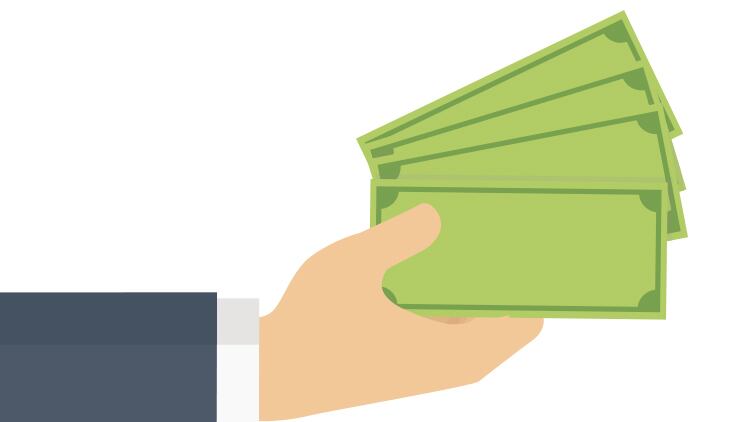
Cash still preferred
Although the 15% decline in cash payments has opened the door to card seizing the throne, UK Finance’s spokesperson concluded that the UK is far from becoming a cash-free society.
“Despite cash being less important than it once was, it will remain a payment method that continues to be valued and preferred by many.”
When asked if there is a sense of inevitability about the decline of cash and venues going cashless, Vianet’s Lane responds: “That’s a really difficult question to answer.
“If I apply what I’ve seen in the vending industry the adoption rate of payment in terms of card payment is ever increasing. I can only see that same trend in retail.
“If you even step back three years to 2015, contactless hadn’t really even entered the retail market. Since then, the growth has averaged anything between 220% and 250% in transactions, month on month
“The adoption has already materialised. All cards now issued by banks have contactless on it, the big players all have it now.
“A lot of it will come down to, one, the location enabling that capability to take payment in that form and, two, the recognition by the consumer that they can pay in that format.”
Bitcoin's bit part
Chris Wright of the Bell at Sapperton in Cirencester, Gloucestershire, explains: “My business partner at the time was a big investor in tech. Four years ago, he mentioned to me that Bitcoin was going to become quite big so we set up this online wallet and started from there.
“The advantage of it for us is that while we’ve not taken much on it with the rate of increase in Bitcoin what we have taken has hugely increased in value.
“The payment system is very much like Apple Pay, somebody just waves their phone in front of a QR code on our till and the money pings straight across.
“When you want to withdraw the funds, you have to find somebody who wants to buy the Bitcoins off you to get sterling for it. We’ve done it, it’s just not quite as easy as withdrawing a PayPal balance.
“It’s not cost us any money and it’s been good in terms of PR. As long as it’s not cost any money it’s always good to try out this new technology, but until more people start using Bitcoin it probably won’t become a massive part of the business.”
